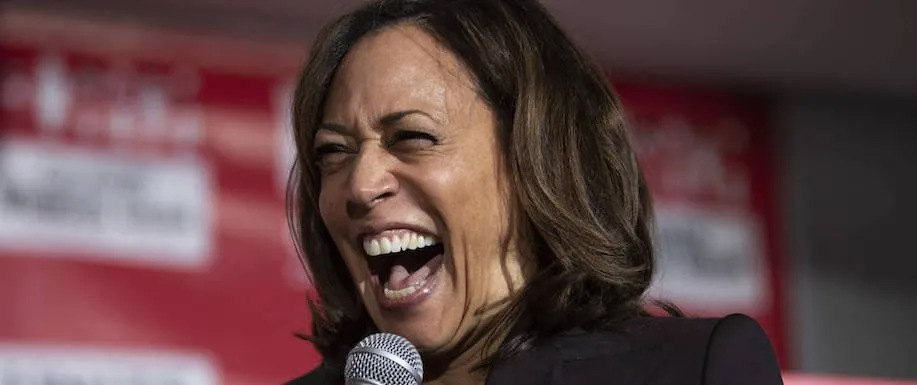the Democratic Party has endorsed Kamala Harris as their presidential candidate for the 2024 election after Joe Biden’s abrupt withdrawal from the race. This move has left many Americans scratching their heads and questioning the integrity of the democratic process. How can the party just select a candidate without the people’s input through primaries? Let’s delve into this political quagmire and uncover the implications of such a decision.
Joe Biden’s Sudden Exit
President Joe Biden’s withdrawal from the 2024 presidential race came as a surprise to many. Health concerns and declining approval ratings may have influenced his decision, but the Democratic Party’s next steps have been nothing short of controversial. Instead of allowing the primary process to determine the next candidate, the party has swiftly moved to endorse Vice President Kamala Harris.
Kamala Harris: The Chosen One
Kamala Harris, who has served as Vice President since 2021, was not the people’s first choice during the primaries. In fact, her performance in the 2020 Democratic primaries was less than stellar, prompting her to drop out before the voting even began. Despite this, the Democratic Party has decided she’s the best option to carry their banner in the upcoming election. This move raises several questions about the democratic process within the party and the country at large.
The Democratic Process: Bypassed or Broken?
The essence of democracy lies in the power of the people to choose their leaders through a fair and transparent process. Primaries and caucuses allow voters to weigh in on who should represent their party in the general election. However, the Democrats’ decision to anoint Kamala Harris as their candidate without a primary vote seems to bypass this fundamental principle.
The Party’s Justification
Supporters of the decision argue that time is of the essence, and the party needed to unite quickly behind a single candidate to maintain a strong front against the Republicans. They claim that Kamala Harris, as the sitting Vice President, is the natural successor and the best person to continue Biden’s policies.
However, this justification doesn’t sit well with many Democratic voters who feel their voices have been silenced. The primary process is not just a formality; it is a critical component of democratic engagement and legitimacy. Bypassing it in favor of backroom decisions undermines the very foundation of the electoral process.
The Republican Response
The Republican Party has seized upon this controversy, painting the Democrats as undemocratic and out of touch with their own voters. GOP leaders are quick to point out the hypocrisy of a party that claims to champion democracy while ignoring it within their ranks. This narrative is likely to play a significant role in the upcoming election, galvanizing Republican voters and potentially swaying independents who are disillusioned with the Democratic process.
Public Outcry and Potential Backlash
Public reaction to the Democrats’ decision has been mixed, but a significant portion of the electorate is outraged. Many feel betrayed and disenfranchised, believing that their votes don’t matter if the party can simply handpick candidates. This sentiment could lead to a low voter turnout among Democrats, a critical factor that could influence the outcome of the election.
The Importance of Primaries
Primaries are designed to be a test of a candidate’s viability and appeal. They provide a platform for different voices within a party to be heard and for voters to make an informed decision. By skipping this process, the Democratic Party not only risks alienating its base but also undermines the candidate’s legitimacy.
Looking Ahead: What Can Be Done?
For those concerned about the erosion of democratic norms, it’s essential to advocate for a transparent and fair primary process. Party leaders must be held accountable, and voters must demand that their voices are heard. If the Democratic Party wants to maintain its credibility, it must commit to upholding democratic principles, even when it’s inconvenient.
In the meantime, the endorsement of Kamala Harris without a primary vote will undoubtedly be a focal point of contention in the 2024 election. Whether this move will help or hurt the Democrats remains to be seen, but one thing is certain: the voters will have the final say in November.
The decision to endorse Kamala Harris as the Democratic presidential candidate without a primary vote is a bold and controversial move. It raises serious questions about the integrity of the democratic process within the party and could have far-reaching implications for the 2024 election. As voters, it’s crucial to stay informed, engaged, and demand transparency from our political leaders.

